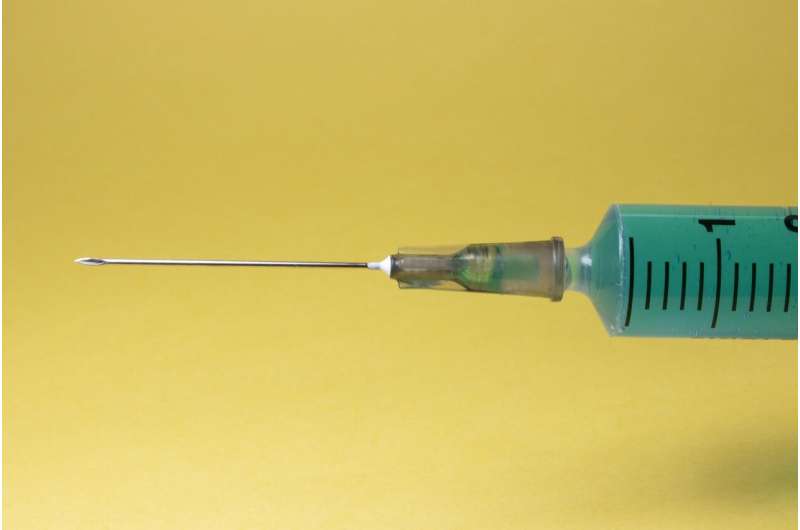No, the COVID-19 vaccines do not contain a glowing ‘Lucifer’ protein

Do we really need to say this?
The latest off-the-wall claim from the anti-vaccine crowd involves an enzyme called luciferase, from the Latin word “lucifer”—bearing light.
Yes, that’s also the source of the name for the fallen angel in Latin translations of the Bible.
But no—a thousand times no—there is no luciferase, much less anything devilish, in the COVID-19 vaccines.
This misinformation seems to have emerged months ago, and it was given new life this week in a tweet from a correspondent for the conservative site Newsmax. Twitter quickly suspended the writer’s account, according to the Daily Beast.
But like much misinformation, it did not spring up from nowhere.
Luciferase occurs naturally in fireflies, causing them to glow by breaking down a compound called luciferin. This phenomenon was adapted by scientists long ago for use as a genetic “reporter”—a powerful laboratory technique. In the case of the COVID vaccine made by Pfizer-BioNTech, it was used in laboratory tests of the lipid nanoparticles used to deliver messenger RNA inside cells. Luciferase was “expressed” in lab animals to make sure the nanoparticles would end up in the right place.
There is no luciferase in the actual vaccines. Among the many scientists who pointed this out on social media was Angela Rasmussen, a virologist at VIDO-InterVac, a research organization based at the University of Saskatchewan.
“I can’t address all concerns about vaccines, but I can address nonsense about luciferase being the devil’s preferred reporter (which again is not actually a vaccine ingredient),” she tweeted.
Others resorted to humor in dismissing the bizarre claim.
If the original tweeter was concerned that a glowing protein from fireflies was being used for nefarious purposes, she might look elsewhere in the animal kingdom, said Jason Kindrachuk, a scientist who studies the biology of infectious diseases at the University of Manitoba.
Source: Read Full Article
